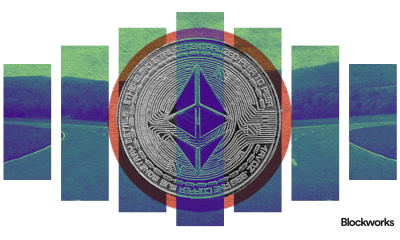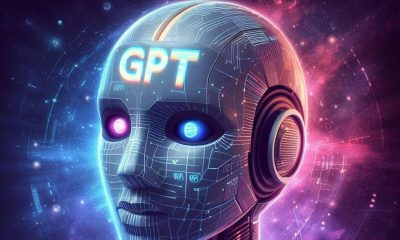

Technology
AI can’t match human creativity, says Fields medalist Manjul Bhargava – Crypto News
Fears of artificial intelligence (AI) outsmarting humans anytime soon are overblown, leading mathematicians have assured. AI is nowhere close to acquiring critical thinking, or reaching scientific breakthrough that humans are capable of, they said.
While they admit that AI is a powerful technology that will have a profound impact on society and economy, they emphasise that children should be encouraged to enjoy mathematics—’Math for Math’s sake’—to help develop creativity and problem-solving skills.
“…that deep kind of critical thinking, analytic thinking, that keeps us producing new knowledge, that AI is not really doing yet, and whether it will be able to or not, that’s sort of still an open question,” Manjul Bhargava, professor of mathematics at Princeton University, who was awarded the Fields Medal in 2014 for his work on geometry of numbers, told Mint. “It will take years for it to do the kind of critical thinking, analytical thinking, new knowledge creation, kind of creativity that’s required to make scientific and mathematical breakthroughs. It’s not really close yet”.
The prestigious Fields Medal honour, named after Canadian mathematician John Charles Fields, is considered as the Nobel prize of mathematics.
His comments come at a time when companies across the world are investing in AI-related infrastructure, and upskilling programmes just when there is a looming fear that AI will replace human jobs. In fact, Microsoft, IBM , Tata Consultancy Services (TCS), Amazon and Meta are some of the firms that have retrenched employees as AI gets deployed across hierarchies.
But the work that AI can do today is still relegated to the content that is fed into it. Bhargava pointed out that in the next two-three years, AI will solve problems because it would have read all undergraduate math and science books and through large language learning models “mimic the kinds of solutions that are in all these books”.
He rejected the notion that mathematicians are worried about AI.
“No, there’s not so much fear. There’s more excitement. Right now, there’s a lot of humour and laughter at the kinds of answers that AI gives to slightly more complex math questions… But it’s not necessarily going to be coming up with anything that humans don’t know. So, in that sense, it’s not really doing critical thinking, it is doing pattern matching”.
V. Kumar Murty, who teaches mathematics at the University of Toronto, Canada, told Mint that the job losses seen at companies are temporary. “What we should really be thinking of is, okay, if certain jobs disappear, what new job is it going to enable, that doesn’t exist now? What new opportunities is it going to create for me that don’t exist now?”
Murty, who held the post of director of the Fields Institute for Research in Mathematical Sciences, Canada, highlighted the need to encourage math learning for the sake of the subject and to move away from rote learning or focus only on entrance exams for an engineering seat.
In India, more than 1.3 million students appeared for this year’s engineering entrance test in a bid to secure admission to one of the 23 Indian Institutes of Technology (IITs) or other government-funded engineering institutions.
For many students, the road to a reputable engineering college goes through coaching hubs like Kota and Sikar (Rajasthan). The professors want that outlook to change.
“The engine of innovation is mathematics. What is Google? It’s linear algebra. The robotic vacuum cleaner is computational geometry. Satellite transmission is polynomial over finite fields. Any piece of technology that is in common use today has, at its root, mathematics… If you want to have that culture of strong research, strong innovation, you need to let the people who do math for math’s sake have opportunity as well,” Murty.
Bhargava is more optimistic that classroom teaching is going beyond chalkboards and there is importance given to interdisciplinary teaching where subjects are not offered depending on grades with the belief that one is superior to the other.
Coincidentally, Bhargava and Murty are also involved in the Lodha Mathematical Sciences Institute, a newly-launched privately-funded math research institute in Mumbai. While Bhargava is the inaugural thematic programme head, Murty is the director at the institute.
-

 Technology1 week ago
Technology1 week agoElon Musk unveils new company ‘Macrohard’ to replicate Microsoft ‘purely’ with AI – Crypto News
-
Business1 week ago
DeFi Scores Major Win: DOJ Softens Stance on Money Transmitting Charges – Crypto News
-

 De-fi1 week ago
De-fi1 week agoTrump’s World Liberty Financial Sets Sept. 1 Launch for WLFI Token Unlock – Crypto News
-

 Cryptocurrency1 week ago
Cryptocurrency1 week agoINJ price eyes $20 as Republic expands RWA with Injective – Crypto News
-

 Blockchain1 week ago
Blockchain1 week agoIRS Crypto Head Trish Turner Resigns From The Agency – Crypto News
-
Business1 week ago
Coinbase To List Trump’s World Liberty Financial USD1 Stablecoin – Crypto News
-
Technology1 week ago
OKX Launches PI/USDC Pair as Pi Network Faces Liquidity Questions – Crypto News
-

 Cryptocurrency1 week ago
Cryptocurrency1 week agoCoinbase to list World Liberty’s USD1 stablecoin – Crypto News
-

 Technology1 week ago
Technology1 week agoElon Musk’s xAI open- sources Grok 2.5 model, vows to release Grok 3 in next 6 months – Crypto News
-
Business1 week ago
Crypto Week: Top Headlines You Can’t Miss – Crypto News
-

 Cryptocurrency6 days ago
Cryptocurrency6 days agoEthereum protocol update details plan to boost transaction capacity with blobs – Crypto News
-
Business1 week ago
XRP News: Tidal Trust II Files Leveraged Long XRP ETF With SEC – Crypto News
-

 Technology1 week ago
Technology1 week ago93% of Indian leaders eye AI agents to boost workforce, says Microsoft’s new report – Crypto News
-
Business1 week ago
Singapore’s DBS Bank Rolls Out Ethereum Tokenization as ETH Treasuries Hit $17B – Crypto News
-

 De-fi1 week ago
De-fi1 week agoEU Weighs Public Blockchain for Digital Euro After US Stablecoin Law – Crypto News
-
Business1 week ago
Breaking: U.S. Appeals Court Approves Dismissal of XRP Lawsuit – Crypto News
-
Business1 week ago
Canary Capital Files Amended S-1 For XRP ETF, Boosting Approval Hopes – Crypto News
-
Technology1 week ago
Japan’s FSA Pushes Bold Crypto Tax Reform, Boosting Prospects for ETF Listings – Crypto News
-
Business1 week ago
XRP Whale Moves For Profit: $50M Token Transferred as Ripple Case Ends – Crypto News
-

 Blockchain1 week ago
Blockchain1 week agoBlackRock Triggers Bitcoin Sell-Offs With Half A Billion Dollars Dumped – Crypto News
-

 De-fi7 days ago
De-fi7 days agoCoinbase Widens In-App DEX Trading in Bid to Become ‘Everything Exchange’ – Crypto News
-
Business5 days ago
Gemini Launches XRP Credit Card Amid Ripple-Backed IPO Plans – Crypto News
-

 Technology4 days ago
Technology4 days agoGoogle’s Gemini 2.5 Flash Image does it all – From blurring backgrounds to multi-image fusion – Crypto News
-

 Technology4 days ago
Technology4 days agoGoogle’s Gemini 2.5 Flash Image does it all – From blurring backgrounds to multi-image fusion – Crypto News
-
Technology1 week ago
OKX Launches PI/USDC Pair as Pi Network Faces Liquidity Questions – Crypto News
-

 Technology1 week ago
Technology1 week agoGoogle unlocks Veo 3 video AI for free users this weekend: How to use, usage limit and more – Crypto News
-

 Blockchain1 week ago
Blockchain1 week agoThai Police Arrest Korean Man in $50M Crypto-to-Gold Laundering Case – Crypto News
-

 Cryptocurrency1 week ago
Cryptocurrency1 week agoPEPE in the green as whales load: The market watches for next moves – Crypto News
-
others1 week ago
Japan CFTC JPY NC Net Positions rose from previous ¥74.2K to ¥77.6K – Crypto News
-
Business7 days ago
Agentic Commerce Can’t Rely on Credit Cards – Crypto Is the Only Way Forward – Crypto News
-

 Blockchain7 days ago
Blockchain7 days agoOne Year After Pavel Durov’s Arrest: What’s Ahead? – Crypto News
-
others7 days ago
United States CFTC S&P 500 NC Net Positions climbed from previous $-192.1K to $-171.5K – Crypto News
-
Technology4 days ago
XRP Ledger Secures Major Win, Powering China’s Top Supply Chain Firm – Crypto News
-
Business1 week ago
BOJ Governor to Join Fed’s Jackson Hole Summit—Will Powell Signal September Rate Cuts? – Crypto News
-

 De-fi1 week ago
De-fi1 week agoNasdaq Delists Windtree Therapeutics Over Price Rule After BNB Pivot – Crypto News
-

 Cryptocurrency1 week ago
Cryptocurrency1 week agoWhat’s the Fuss About and Is It Worth Your Money? – Crypto News
-

 Blockchain1 week ago
Blockchain1 week agoSBI Forms New Ties With Circle, Ripple And Startale – Crypto News
-
Business1 week ago
FTX Creditors Launch Legal Battle Against Kroll for Mishandling Claims – Crypto News
-
Business1 week ago
Whale Behind $100M TRUMP Gains Tied to Kanye West’s YZY Insider Trading – Crypto News
-

 De-fi1 week ago
De-fi1 week agoSharpLink Gaming Approves $1.5 Billion Share Buyback – Crypto News
-

 Technology6 days ago
Technology6 days ago18 months after surgery, Elon Musk’s first brain chip patient is playing Mario Kart and planning to start a business – Crypto News
-

 Cryptocurrency6 days ago
Cryptocurrency6 days agoHow stablecoin inflows are shaping the L1 price race – Crypto News
-

 Technology6 days ago
Technology6 days agoPermit to Starlink bars copying, decryption of Indian data overseas: MoS Telecom – Crypto News
-
Business4 days ago
BlackRock Buys $300M in Ethereum as Crypto ETF Inflows Return – Crypto News
-

 Blockchain1 week ago
Blockchain1 week agoTrump WLFI Mints $205M Stablecoins After Fed Crypto Speech – Crypto News
-

 Blockchain1 week ago
Blockchain1 week agoVERB, TON Treasury Company, Announces Over $780M in Assets – Crypto News
-

 Blockchain1 week ago
Blockchain1 week agoVERB, TON Treasury Company, Announces Over $780M in Assets – Crypto News
-
others1 week ago
Pennsylvania Proposes New Ethics Bill to Restrict Public Officials’ Crypto Holdings – Crypto News
-

 Technology1 week ago
Technology1 week ago10 all-in-one desktops on Amazon at great discounts for gaming, work and entertainment – Crypto News
-

 De-fi1 week ago
De-fi1 week agoStablecoin Supply on Linea Hits All-time High amid Airdrop Speculation – Crypto News








